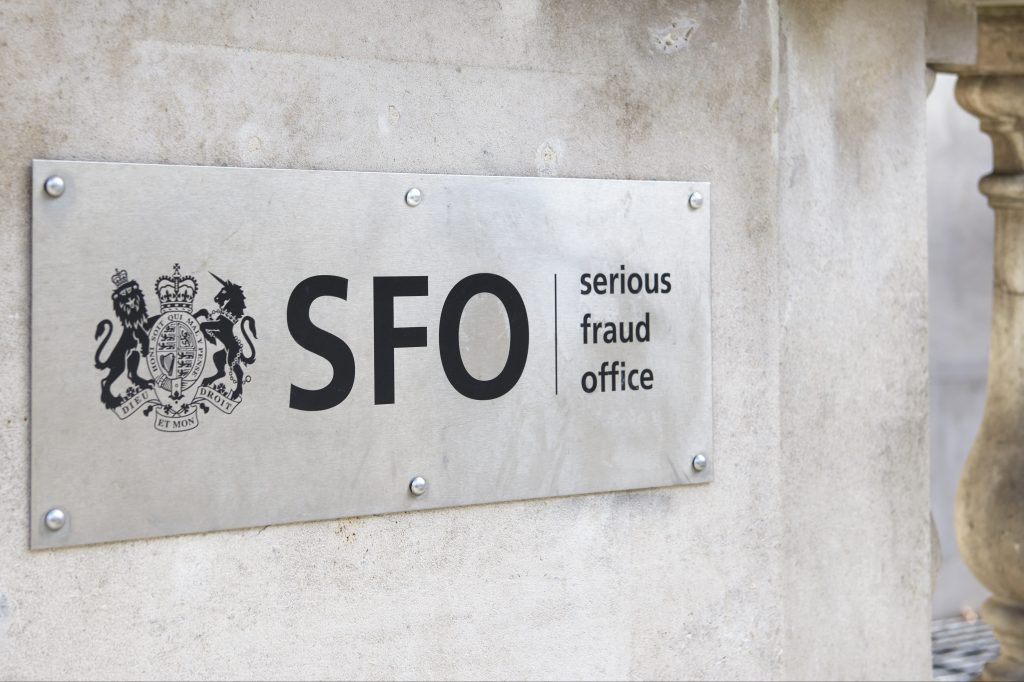Securing a record penalty for a corporate criminal conviction in the Glencore case was the high point of the work carried out by the UK’s Serious Fraud Office (SFO), but the collapse of the Unaoil investigation and subsequent launch of an independent review by the attorney general will present the organization’s new leadership with a substantial challenge.
The Glencore case saw the energy company forced to pay a £280m ($400m) penalty after an SFO investigation revealed it had paid $29m in bribes to gain contracts in Africa and, as you would expect, features prominently in the SFO’s annual report, issued this week.
Financial crimes investigated
The SFO recovered just over £95m ($122m) in connection with crimes investigated, and secured the convictions of eight executives, resulting in cumulative sentences of 61.5 years. Around 1,200 referrals were received from whistleblowers and other agencies, and there are 35 criminal cases currently open.
Director Lisa Osofsky will leave in September, after five years in the job. Her replacement is former Metropolitan Police Service Assistant Commissioner Nick Ephgrave. She said: “It has been a year of great successes, but we are not complacent. We have experienced setbacks too – and we are aware we need to change to meet the evolving challenges of our work.”
The most high-profile setback came when an independent review of the SFO carried out by High Court judge David Calvert-Smith in the wake of the acquittal of four individuals connected with the Unaoil case found the Office had made “a series of missteps”.
Unaoil case
Unaoil was another energy company bribery case and it was the SFO’s handling of its dealings with a private investigator, David Tinsley, who was representing a member of the family who controlled the company, that caused concern.
Tinsley is alleged to have tried to broker a deal with the SFO by promising to secure guilty pleas from several defendants. The SFO’s failed to disclose documents detailing those interactions, which contributed to the case being thrown out in court. Osofsky herself was criticised for agreeing to meet Tinsley personally and exchanging text messages with him while the SFO was preparing its case.
In the annual report, Osofsky said the SFO was making progress on implementing the recommendations made by Calvert-Smith, but that further work was required on others.
She also drew attention to the difficulties the SFO is having in recruiting and retaining staff. Much of this is down to the erosion of civil service pay packages, and the effects of a long running staff dispute with central government over pay and other issues cannot be dismissed. Staffing at the SFO is down to 450 permanent and fixed-term employees, from 470 the previous year, and with a 8.5% vacancy rate.


